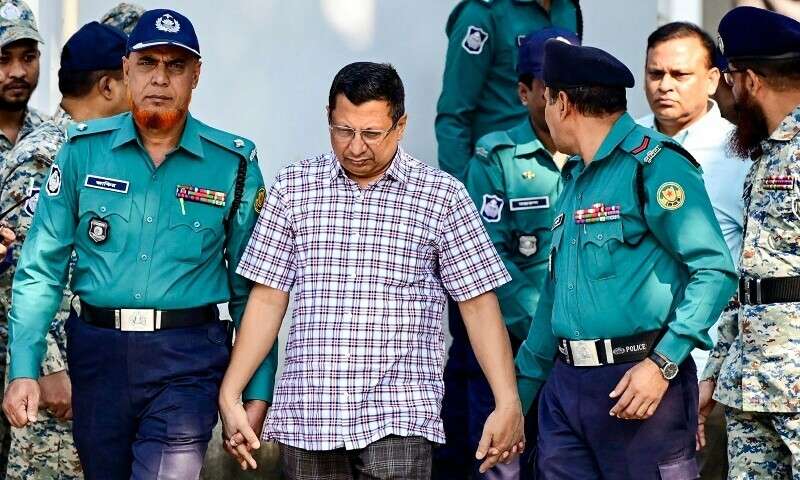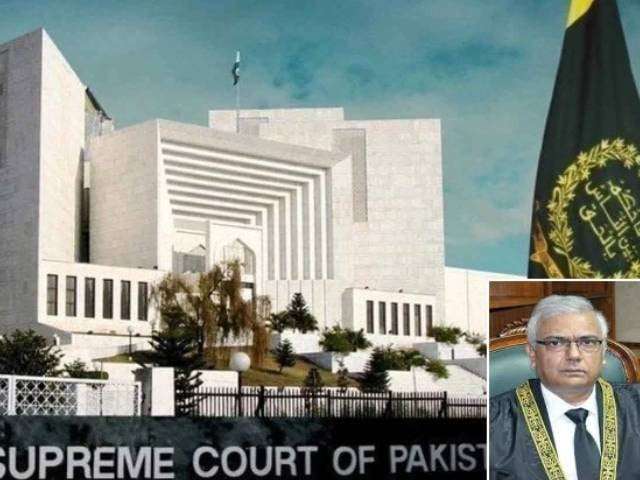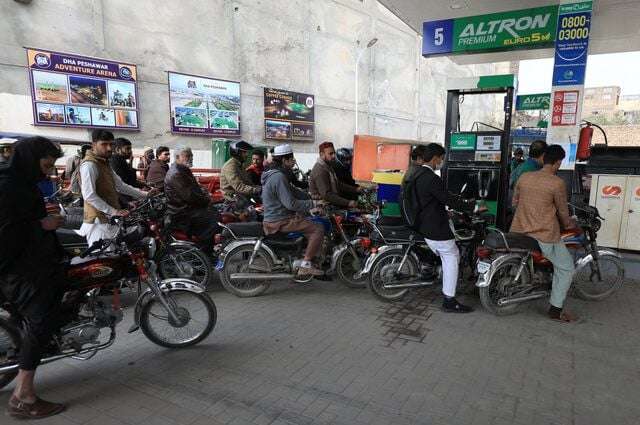Introduction
In a significant legal development in Bangladesh, former police chief Chowdhury Abdullah Al-Mamun has been accused of committing crimes against humanity related to the violent suppression of student protests during the August revolution. The violence led to the collapse of the regime led by Sheikh Hasina, and the subsequent judicial actions have sparked a wave of scrutiny surrounding the former police leadership. Al-Mamun, along with several other high-ranking officials, now faces charges for overseeing a deadly crackdown that is alleged to have included massacres, extrajudicial killings, and systemic human rights abuses.
The crimes attributed to these individuals have garnered international attention, particularly due to the severity of the alleged offenses. The charges stem from a period of unrest that saw widespread protests, police brutality, and governmental efforts to quell dissent. In this article, we will explore the details of the charges against the former police chief and others, the legal proceedings underway, and the broader implications of these events for Bangladesh’s political landscape.
The Case Against Chowdhury Abdullah Al-Mamun
Background of the Charges
Chowdhury Abdullah Al-Mamun, the former inspector general of Bangladesh Police, appeared in court in Dhaka where he faced accusations of orchestrating crimes against humanity during a violent crackdown on student protests. The unrest, often referred to as the “August revolution,” led to the ousting of Prime Minister Sheikh Hasina’s regime. As the head of Bangladesh’s police force at the time, Al-Mamun is accused of playing a central role in the suppression of these protests, which included targeting students demanding political reform and an end to government corruption.
According to prosecutors, Al-Mamun was directly responsible for overseeing a campaign of violence that resulted in the deaths of more than 700 people. The allegations include charges of mass killings, genocide, and extrajudicial executions. The prosecution argued that Al-Mamun, in his capacity as the chief of police, directed and facilitated actions that caused untold suffering to countless individuals during the crackdown.
The Role of Ziaul Ahsan and the Rapid Action Battalion
Also facing charges is Ziaul Ahsan, a former commander of the Rapid Action Battalion (RAB), an elite paramilitary force often associated with extrajudicial violence and human rights violations. Ahsan, like Al-Mamun, is accused of facilitating and executing violent tactics against protesters. His actions allegedly included organizing secret detention centers, conducting extrajudicial killings, dismembering bodies to cover up crimes, and curbing access to the internet to control information during the protests.
Ahsan has denied all charges, stating that he was not in control of the secret detention centers or involved in surveillance against government critics. However, the prosecution’s case against him is detailed and includes testimonies about his direct involvement in these alleged atrocities.
Testimonies and Allegations
During the trial, prosecutors presented a disturbing list of alleged crimes committed by the defendants. Among the most shocking was the claim that lower-ranking officers under Al-Mamun’s command were responsible for killing protesters and incinerating their bodies to destroy evidence. One case in particular highlighted the tragic death of Shaikh Ashabul Yamin, a student protester, whose death was captured on video and widely shared on social media. In the video, Yamin is seen being thrown from a police armored vehicle, his lifeless body landing on the street below.
The emotional impact of these events was not lost on the court, as one of the defendants, Majharul Islam, broke down in tears during proceedings. Islam, who had been the chief of Dhaka’s Gulshan Police Station, publicly begged for mercy, claiming that he had supported the protesters and did not participate in the violent crackdown.
The Court Proceedings and Legal Process
Prosecution’s Arguments
Chief prosecutor Mohammad Tajul Islam, representing Bangladesh’s International Crimes Tribunal, was vocal in his condemnation of the actions carried out by the accused. Islam labeled the crimes committed by the former officials as acts that “even devils dare not do.” He described Al-Mamun as the “commander of all atrocities” that were inflicted upon the student protesters. Islam’s rhetoric highlighted the gravity of the accusations and the deep-seated corruption that the trial seeks to expose.
The court proceedings have so far revealed a disturbing picture of police and paramilitary forces involved in systematic violence and cover-ups. The prosecution’s evidence paints a clear picture of state-sanctioned brutality, with individuals in power allegedly using their positions to commit heinous acts without fear of retribution. The impact of these actions on Bangladesh’s society and its democratic processes has been profound, leading many to question the government’s commitment to human rights and justice.
Defense and Denial of Charges
While the prosecution has presented damning evidence, the defense attorneys for the accused have denied the charges. Ziaul Ahsan, the former RAB commander, denied involvement in extrajudicial killings or in overseeing the secret detention centers. Similarly, other lower-ranking officers, including Majharul Islam, have denied participating in the acts of violence, claiming that they were simply following orders and did not have the authority to question the commands given by higher-ranking officials.
Despite these denials, the court has proceeded with the investigation, and the evidence presented thus far seems to suggest a pattern of orchestrated violence aimed at quelling political dissent and suppressing public protests. The defendants will have further opportunities to present their defenses as the case progresses.
Investigations and Future Proceedings
The court has given prosecutors until December 19 to complete their investigation report, after which the trial will continue. In the meantime, the accused individuals remain in custody. The ongoing investigation is expected to shed more light on the full scope of the crimes allegedly committed during the August revolution and provide further insight into the role of the police and military forces in the suppression of protests.
Political Context and Implications for Bangladesh
The charges against the former police chief and other officials have far-reaching implications for the political landscape of Bangladesh. The alleged crimes are seen by many as part of a broader pattern of human rights abuses during the regime of Sheikh Hasina. Over the course of her 15-year tenure, Hasina’s government has been accused of widespread corruption, mass detention of political opponents, and extrajudicial killings. These charges have fueled discontent and led to protests that ultimately resulted in the collapse of her government.
In a stunning turn of events, Hasina herself faces an arrest warrant issued by the court, with charges of “massacres, killings, and crimes against humanity” against her. However, she fled the country on August 5, 2024, using a helicopter to escape to India, where she remains in exile.
The legal proceedings against Al-Mamun, Ahsan, and others signal a moment of reckoning for those who were complicit in the violence that plagued the country during the protests. The trial may also serve as a precedent for holding those in power accountable for human rights violations, regardless of their political status.
Conclusion
The case against Bangladesh’s former police chief, Chowdhury Abdullah Al-Mamun, and other officials is a landmark moment in the country’s pursuit of justice for the victims of the August revolution. The charges of crimes against humanity, including massacres, extrajudicial killings, and human rights violations, have shocked the nation and the international community. As the investigation and trial continue, many are hoping that this legal process will hold those responsible accountable and help pave the way for a more just and democratic Bangladesh.
The unfolding trial also highlights the ongoing struggle for human rights and accountability in Bangladesh, where many believe that the legacy of violence and corruption still looms large. The international community is closely watching these proceedings, as they may set an important precedent for addressing human rights abuses in the region.
FAQs
1. What charges are the former police chief and other officials facing?
The former police chief and several other officials are facing charges of crimes against humanity, including massacres, extrajudicial killings, genocide, and human rights abuses during the violent crackdown on student protests.
2. Why is the August revolution significant in this case?
The August revolution led to the collapse of Prime Minister Sheikh Hasina’s regime and saw widespread protests. The violent response to these protests, including the killing of over 700 people, is central to the charges against the former officials.
3. How is the defense responding to the charges?
The defense has denied the charges, with accused individuals claiming they were either following orders or not involved in the atrocities. They are contesting the prosecution’s claims of extrajudicial killings and cover-ups.
4. What is the political context behind these charges?
The charges are part of broader accusations of corruption, repression, and human rights abuses against the government of Sheikh Hasina, who was ousted after the August revolution. Hasina herself faces an arrest warrant for crimes related to the crackdown.
5. What is the future of this case?
The trial is ongoing, with prosecutors given until December 19 to complete their investigation. The legal proceedings are expected to continue and could result in significant consequences for those involved in the alleged crimes.
SEE ALSO:
https://flarenews.pk/2024/11/20/google-messages-to-get-built-in-backup-and-restore-feature/



